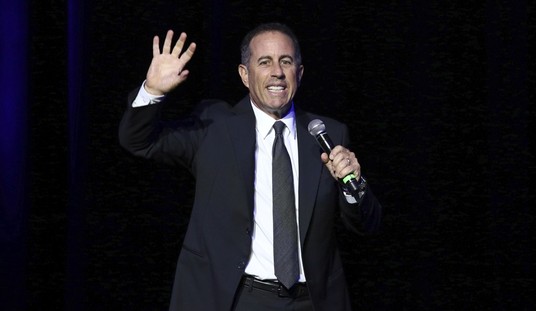A couple in Redmond, Oregon has been fighting for nearly four years to get the state’s Department of Human Services to give them their two children (ages 4 years and 5 months) back.
Amy Fabbrini, 31, and Eric Ziegler, 38, had their first son, Christopher, taken away shortly after he was born in 2013. Their second son, Hunter, was taken from his parents as a newborn infant from the hospital earlier this year. Events that would devastate any parent.
And why? Because Fabbrini and Ziegler have below average IQs. Fabbrini’s IQ is 72 and Ziegler’s is 66. The average is between 90 and 110.
No abuse was found by officials, nor neglect. Officials in the state simply decided they were not intellectually capable of caring for their children, despite Fabbrini having two older children she cared for with her first husband.
Fabbrini told The Oregonian,
“I love kids, I was raised around kids, my mom was a preschool teacher for 20-plus years, and so I’ve always been around kids,” Fabbrini said. “That’s my passion. I love to do things with kids, and that’s what I want to do in the future, something that has to do with kids.”
Ever since their son Christopher was taken from them almost four years ago, the couple has done everything they can to prove they are fit parents. They’ve completed state-approved parenting classes, and CPR and nutrition classes through the non-profit MountainStar, the Women, Infants and Children agency, Healthy Families of the High Desert, and other agencies.
But rather than build a support system around the parents, the state has opted to simply take the children away, allowing only supervised visits, and putting the boys in foster care. Despite Fabbrini’s father being overtly negative about his daughter having children, the couple has supporters from family to a state legislator, and even professionals hired to evaluate their case by the state.
“They are saying they are intellectually incapable without any guidelines to go by,” said Sherrene Hagenbach, a former volunteer with the state agency who oversaw visits with the couple and Christopher from last June through August.
Hagenbach is a professional mediator and a board member of Healthy Families of the High Desert. After she told state caseworkers she thought the couple was capable of raising Christopher, she recalls, she was told her volunteer services were no longer needed.
She’s spent the past year advocating for Fabbrini and Ziegler.
“They’re saying that this foster care provider is better for the child because she can provide more financially, provide better education, things like that,” Hagenbach said. “If we’re going to get on that train, Bill Gates should take my children. There’s always somebody better than us, so it’s a very dangerous position to be in.”
Dangerous, indeed. People who are MENSA members can be horrifically bad parents.
The couple’s attorney filed an unsuccessful motion to have Fabbrini and Ziegler’s children returned to them but makes a solid case for the parents.
“A cognitively impaired parent can still parent,” attorney Aron Perez-Selsky said. “Their rights cannot be terminated simply because they suffer from cognitive impairment, so long as they are able to put together a plan for how they’re going to safely care for their kids with the support of people in the community.”
IQ has little to do with quality parenting until numbers get much lower, as disabled parenting advocate, Susan Yuan, states,
“They (case workers) have very little experience of people with intellectual disabilities, and because all their orientation is for the safety of the child, they err on the side of overprotecting the child without realizing that the parent can do it,” Yuan said. “It’s coming from a good place, but they need more exposure to people with disabilities.”
She said there are many myths about parents with intellectual disabilities, including the idea that IQ is an important factor in parenting.
“Research literature has found that the IQ really doesn’t correlate with parenting until the IQ is below 50,” she said. “A parent of any IQ, a parent with a 150 IQ, can be a bad parent. … I would say that if the child can be safe and loved in their own family, that this is appropriate parenting and you can put other opportunities in place.”
The Oregonian itself stated,
And both Fabbrini and Ziegler seem capable in a video interview with the news outlet.“Over several in-person and phone interviews with The Oregonian/OregonLive, they seemed like capable and caring adults – frustrated and confused by the state’s intervention, but no more so than any parent would be in their situation.”
“We’ve just done everything and more than what they’ve asked us to,” Fabbrini said.
“It doesn’t seem like it’s good enough for them,” Ziegler added. “They’re saying, ‘Who would parent Christopher better, the foster parents or the parents?’ is basically what they’re going on.”
As we’ve seen recently with the case of Charlie Gard in the U.K., governments are taking control over children from their parents for astonishing and dismaying reasons.
A national study estimates that across the country, between 40 to 80 percent of parents with intellectual disabilities wind up losing their rights to their children. Of course, there are likely cases where it does keep the child from neglect or harm, but how many cases are like Fabbrini’s and Ziegler’s?
As Hagenbach said, if the idea we’re going for is “who can best support this child,” and the parents don’t have a natural right and claim, what keeps any parent from having their child taken away by the government?













Join the conversation as a VIP Member